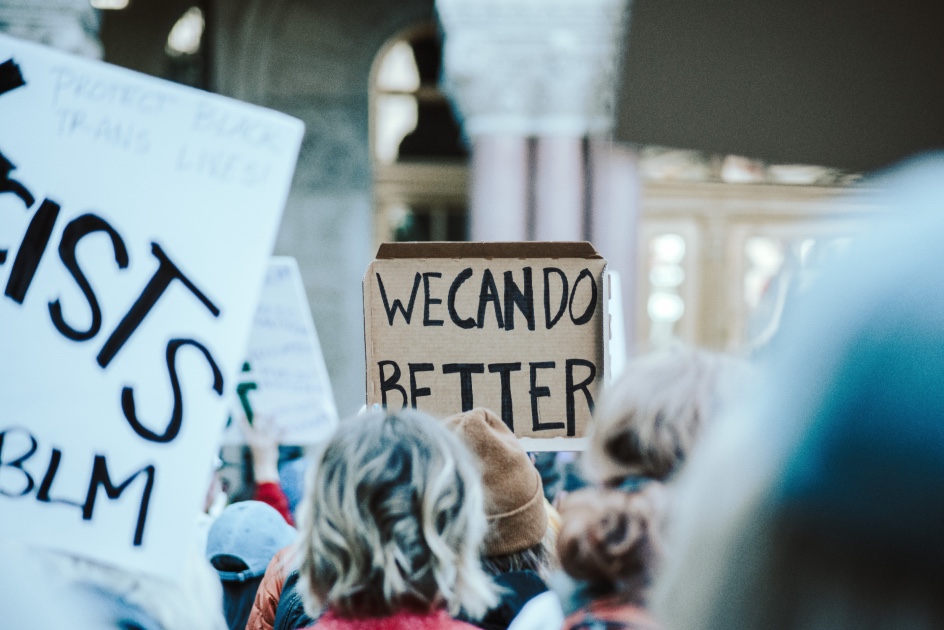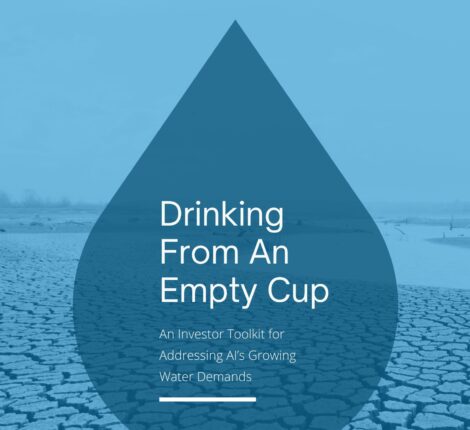Corporate Leaders, We Know You Can Do Better
Several NorthStar staff members — Olive Haye, Amrita Sankar, Whitney Nguyen, and Mari Schwartzer — recently submitted the following open letter as an opinion editorial. We are publishing it here to share with our clients and other interested readers.
In the wake of George Floyd’s death, corporate leaders from 66% of the S&P 500 companies made public statements, many of which condemned racism or affirmed the need for a focus on diversity, equity, and inclusion.[1] But these same corporate leaders run companies where Black people’s existence is routinely diminished – where Black people make up a miniscule percent of leadership and don’t receive the same sponsorship or promotions as their white peers, and where their dignity is routinely undermined. We believe the root causes of these issues are corporate cultural hierarchies and embedded systemic racism. We know that companies can do better. It is a choice. As one of the few asset management firms owned and led by women and minorities, we at NorthStar Asset Management, Inc. do our work through the lens of people who have acutely felt the harm created by structural racism and systemic biases. As Juneteenth arrives and the one-year anniversary of George Floyd’s murder has passed just weeks ago, we challenge every company large and small to go beyond glossy reports and catchy blog posts to do the work to create and nurture a workplace culture that is truly reflective of a commitment to diversity and inclusion.
Starting at the top, corporate c-suites have long been dominated by white men, ensuring that white male American values persist as the norm. By extension, Black culture is “incorrect” and daily existence as a Black employee in corporate America is excessively taxing. This needs to change. Company executives declare goals of fostering cultures where employees of all creeds and colors want to join and thrive; yet, decades of anti-bias training and diversity initiatives have, by and large, failed.[2] Workplaces are exclusionary and white-centered and continue to routinely assault Black employees’ dignity.[3] At our majority-diverse and female, woman-owned asset management firm, a Black colleague reported heinous everyday indignities from prior jobs at prestigious financial institutions: “I knew you weren’t protesting, you’re not that kind of ‘black person.’” “It’s not like you eat collard greens.” “Our family had slaves, but we loved them and treated some like family.” “I would never hire you at my hedge fund – you’re black and a woman.” Do these statements surprise you? They are more common than you may think. The psychological toll of daily race-based confrontations at work is an emotional tax on Black productivity and lifespan. Confronting seemingly insurmountable odds in an unwelcoming work environment every day, compounded over a lifetime, leads to stress so corrosive that it physically changes bodies, causing Black people to age quicker, become sicker, and die younger.[4] The human body isn’t designed to withstand such biological and emotional assaults, and it’s the responsibility of employers to identify the factors in the company culture that lead to these emotional assaults. Racism is systemic, but corporate leaders have the power to shift systems and disrupt norms as they have in many other cases. It’s a matter of intentional disruption.
We urge companies to closely examine hiring practices. In pursuit of “cultural fit,” companies use a barrage of standardized evaluations and/or metrics to assess applicants beyond their résumés and then later to evaluate performance for promotion consideration. Despite their widely accepted usage, personality testing originates from racist and white supremacist ideologies. In fact, research has uncovered that personality tests were “[d]riven largely by the eugenics movement and steeped in Darwinistic concepts and Western middle-class values, [and that] early test developers not only set the table for how mental abilities (e.g., intelligence) would be defined, but also how test results would be measured, interpreted, and used.”[5] It’s clear to us that these common discriminatory practices of American corporate culture result in the relegation of Black employees to lower paying, less prestigious, and fewer powerful jobs compared to white men.[6]
Companies touting a commitment to equality need to honestly examine why their entry-level ranks start with employees of color numbering in the double-digit percentages but nearly none move to senior management levels.[7] What’s holding Black employees back? We guarantee that it’s not lack of talent, drive, or intelligence. We suggest that the culprits are managers’ personal comfort levels, affinity bias, and/or their preconceived ideas of which employees are capable. Performance is not always a reflection of an individual’s intelligence or aptitude, but rather whether the individual can adapt and perform on a white-centric test. Systems designed for Black people to fail, to be erased, and to be maintained at a certain status in our society must be dismantled.
Commitments are good, but action is better. We believe that deeply examining company culture and seeking to understand the experiences of employees of color are foundational to any company achieving its diversity goals. This year, many investors, including our firm, directly pushed companies to deal with these issues, and we challenge companies to use the racial reckoning of 2020 to engage in real, humble introspection and bold action in the pursuit of lasting change.
—————————————————————————————–
[1] “S&P500 Racial Justice and DEI Scorecard Separates Leaders from Laggards.” As You Sow. March 4, 2021. https://www.asyousow.org/press-releases/2021/3/3/racial-justice-dei-scorecard-leaders-laggards. Press release.
[2] Gassam Asare, Janice. “Your Unconscious Bias Trainings Keep Failing Because You’re Not Addressing Systemic Bias.” Forbes. Dec. 29, 2019. https://www.forbes.com/sites/janicegassam/2020/12/29/your-unconscious-bias-trainings-keep-failing-because-youre-not-addressing-systemic-bias/?sh=3f776c741e9d
[3] Davis, Aida Mariam. “Dignity Is the Bedrock for Workplace Belonging.” Stanford Social Innovation Review. April 26, 2021.
[4] Carter, Sierra. “Racism literally ages Black Americans faster, according to our 25-year study.” The Guardian. Dec 7, 2020. https://www.theguardian.com/commentisfree/2020/dec/07/racism-ages-black-americans-faster
[5] Washington, Kevin & Malone, Celeste & Briggs, Candyce & Reed, Gregory. (2016) “Testing and African Americans: Testing monograph from the Association of Black Psychologists.” Testing and Assessment with Persons and Communities of Color, edited by Frederick T.L. Leong, Yong Sue Park, American Psychological Association, 2016, pp. 3-11.
[6] Khosroshahi, Hanieh. “The Concrete Ceiling.” Stanford Social Innovation Review, May 2021.
[7] Fuhrmans, Vanessa and Te-Ping Chen. “What’s keeping Black Workers From Moving Up the Corporate Ladder?” Wall Street Journal, April 2021.




